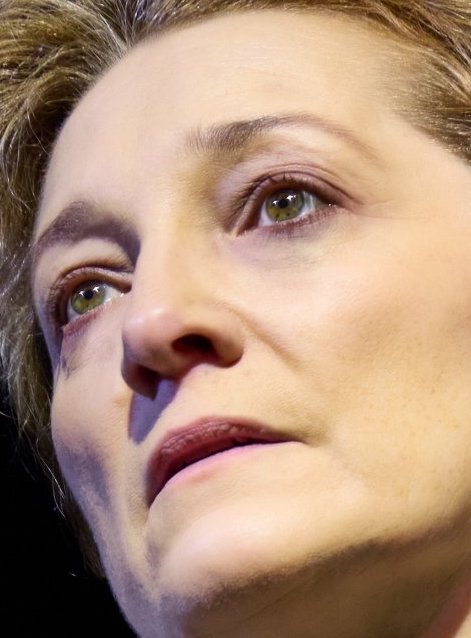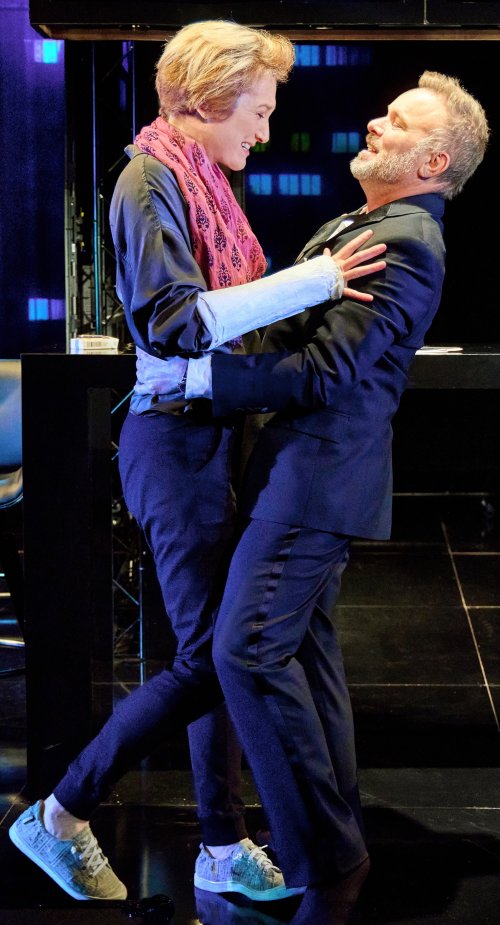
By: Darryl Reilly
“I have to take a piss.” So, states tipsy Russian president Boris Yeltsin in a Moscow television news studio before a 1999 New Year’s Eve broadcast. His staff informs him that as he is to address the nation in one minute, there is not enough time for him to get to the restroom and back. Yetlsin’s solution is to empty a vase of flowers and urinate in it while sitting at a desk. This is the comical prologue of playwright Erika Sheffer’s wrenching, Vladimir.
With Stoppardian flair, Ms. Sheffer dramatizes life in Russia following former KGB strongman Vladimir Putin’s contrived election to a second term as president in 2004; he solidifies his power and is still in office. Putin does not appear in the play but overshadows it. An image of Mikhail Gorbachev is shown during the presentation, stirring memories of his revolutionary glasnost (“openness”). Vladimir searingly charts Russian society’s abandonment of Gorbachev’s high-minded principles, and its descent into a widely accepted embrace of old-time tyranny. A contingent of free-spirited dissidents futilely continue to struggle against oppression.
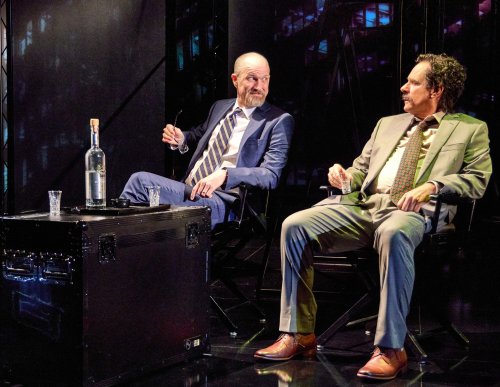
Idealists versus pragmatists, the war in Chechnya, institutional corruption, torturing citizens on trumped up charges, and the poisoning of a crusading journalist, are among the painfully familiar situations vividly depicted. Sheffer’s well drawn articulate characters confront morality, reality and danger, during her compelling plot. A neat device is that the actors portraying Russians speak normally when interacting with each other; when they converse with non-Russians, they employ a heavy accent.
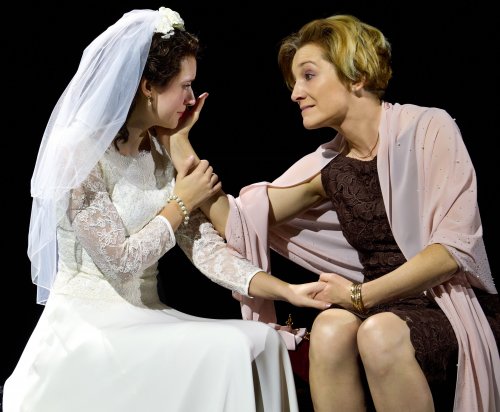
The magnetic Francesca Faridany is towering as the noble sleuthing reporter consumed with battling injustice despite potential personal cost. Ms. Faridany’s regal bearing, expressive face and authoritatively resonant voice, all enrich her commanding characterization; she is the play’s heart and soul. Two-time Tony Award-winning New York stage veteran Norbert Leo Butz’s charisma and sensitivity are forcefully on display in his pivotal role as the initially jocular imbibing newspaper editor. Mr. Butz’s transformation from earthily heroic to commonly opportunistic is chilling as he accepts a state-run television news job, betraying his colleague. Faridany and Butz’s strong rapport as they morph from confederates to adversaries is a major facet of the production. Erin Darke is deliciously feisty as the reporter’s combative daughter, and wry in several subsidiary roles. The formidable company of Erik Jensen, Olivia Deren Nikkanen, David Rosenberg, and Jonathan Walker, all offer fierce turns in their often multiple parts.
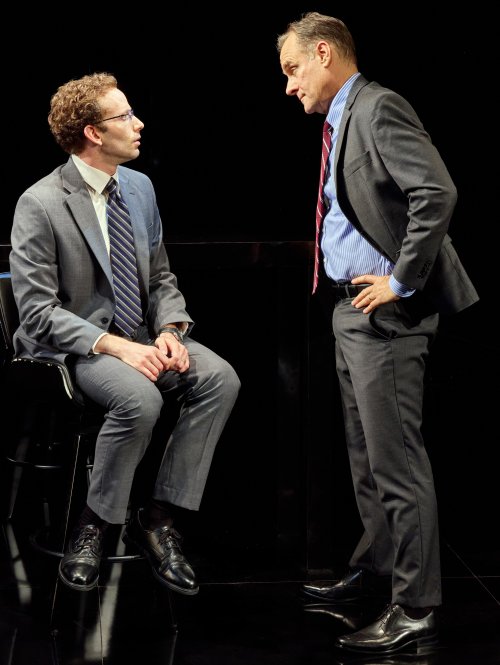
American theater director extraordinaire Daniel Sullivan stages Vladimir with his customary focus, brisk pacing and attention to the visual. Scenic designer Mark Wendland gleaming, black-accented modern components wondrously represent a variety of locales without the need for alterations, allowing for instant scene transitions. Japhy Weideman’s jolting lighting design adds a vintage dimension while evoking queasiness. Lucy Mackinnon’s vibrant projection design contribute to the senses of history and menace. Composer Dan Moses Schreier’s energetic original music and crisp sound design aurally complement the presentation. Jess Goldstein’s business wear-centric and casual costume design authentically realizes the characters in concert with Charles G. LaPointe’s grand hair and wig design.
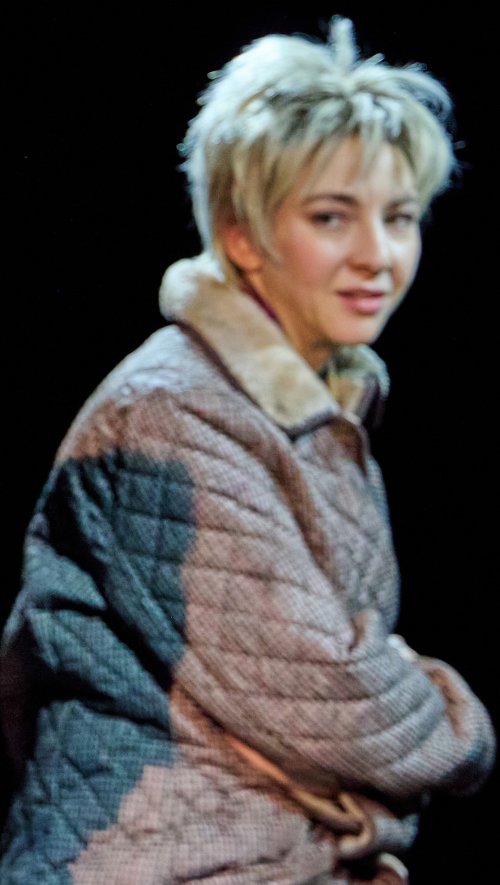
(Photo credit: Jeremy Daniel)
Vladimir’s cautionary and mournful take on recent Russian history sadly resonates in the present.
Vladimir (through November 10, 2024)
Manhattan Theatre Club
New York City Center Stage I, 131 West 55th Street, in Manhattan
For tickets, visit www.manhattantheatreclub.com
Running time: two hours and 15 minutes including one intermission
